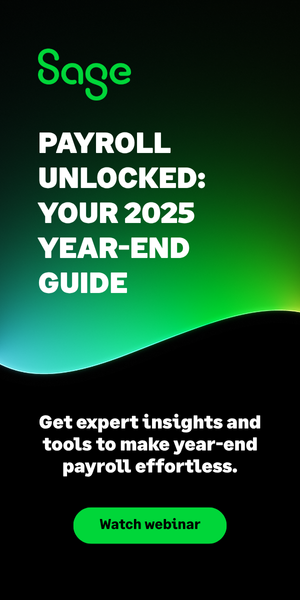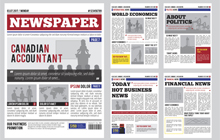Sunday News Roundup 22.09.25: OSC looks at audit ethics, CRA wants benefits back, Poilievre’s math, and more Canadian accounting

Wrapping up the odds and ends from the past week in Canadian accounting news
Subscribe to our weekly newsletter and get all the week’s stories. Click here to sign up.
TORONTO, Sept. 25, 2022 – The Ontario Securities Commission dropped a bombshell on Friday that it would be making “targeted inquiries” to public accounting firms that conduct audits of Ontario reporting issuers. The press release was rather short but was picked up by multiple news outlets across Canada. We published our own report, Why is the Ontario Securities Commission examining Canadian audit firm ethics?, but let’s look at some of the coverage from other outlets.
According to the Political Dictionary, releasing bad news or documents on a Friday afternoon, in an attempt to avoid media scrutiny, is often called a “Friday news dump” by members of the media. The OSC press release does not qualify but, with so little to go on before the weekend, most outlets simply rewrote the press release, while noting that the Canadian Public Accountability Board (CPAB) has brought enforcement actions against some firms.
But two columnists went above and beyond the boilerplate. Barbara Shecter at the Financial Post noted recent violations at Canadian firms and positioned the news within a global context. David Milstead at the Globe and Mail managed to get quotes not only from CPAB but from two of the Big Four accounting firms (Deloitte Canada and PwC Canada). We noted several other facets of the news but these two columnists are noteworthy.
And now, on to the rest of the news from the past week in Canadian accounting.
Going after the little guy … again?
More than a hundred thousand letters have been sent out by the Canada Revenue Agency to Canadians who mistakenly received both EI and CERB benefits during the pandemic. Most of them owe $2,000 or less, according to the CRA, as reported this past week by the Toronto Star.
Some policymakers are asking for leniency for the “little guy.” The CRA says it will take a “compassionate approach” but that’s just corporate messaging for admitting that “this doesn’t look good on us.” One week ago, the Globe and Mail reported Ottawa could lose more than $5-billion in CEBA pandemic loans to small businesses, because “the program had no mechanism to seek out and collect from those who did not repay.”
Each loan was worth up to $60,000, and was interest-free and partly forgivable if the balance is repaid by Dec. 31, 2023. One might reasonably ask how many small businesses feel any incentive to repay the loans knowing there was no built-in solution for collections. We know that most of our readers felt pandemic supports were too generous to individuals and not generous enough to businesses. According to the report, more than 100,000 borrowers may need to be chased down.
Windfall tax would hit big banks, insurers but not oil and gas
This week, the Parliamentary Budget Officer calculated the revenue on two new taxes on banks and insurers, that Prime Minister Justin Trudeau proposed during last year’s Canadian election campaign. As Bloomberg points out, the taxes are meant to target the profits made by banks during the pandemic, which we would rightly call a windfall. The Canadian Press, however, reports that the government is not planning to impose a windfall tax on the massive profits being posted by some Canadian oil and gas producers, largely due to the was in Ukraine. At the same time, the Canadian Taxpayers Federation got a little play this past week in its assertion that 51 countries around the world are cutting taxes, while Canada is increasing them. (Note: The United States is not one of the countries.)
TVO talks money laundering in Canada
If you’re looking for a change from reading, watch this 30-minute panel discussion on TV Ontario (TVO) hosted by Steve Paikin, titled Is Canada a Haven for Money Launderers? The panel features a forensic accountant, a beneficial ownership expert, and a business journalist talking about the Cullen Commission and Canada’s reputation as a major money laundering country.
During a segment on the financial incentives in Canada to facilitate money laundering, forensic accountant Marc Tasse says, “now with CPAs, it’s different. We need to report, if we’re acting as nominees we have to report it, we don’t have a trust account while lawyers do. That’s why so many people say the Canadian Bar Association need to step up and do something because right now there is a lot of professional[s] that are actually enablers. They are paid millions to launder billions.”
Poilievre METR math a stretch but legit
The Globe’s Patrick Brethour, in his Tax and Spend column, breaks down the math behind Pierre Poilievre’s contention that a single working mom with three children faces a marginal effective tax rate of 80 per cent. Poilievre’s staff wouldn’t provide details, so Brethour gives him the benefit of the doubt, starting with picking a province with high tax rates — Quebec. We won’t spoil the payoff. You’ll have to read Brethour’s column yourself.
Quick Hits: Articles of Interest
Want to take on the CRA? Jamie Golombek shares his own fight with the taxman (Financial Post)
Kelowna lawyer fined for 'cavalier' trust fund management (Castanet)
China sends regulators to Hong Kong to assist U.S. audit inspection, sources say (Reuters)
Investors demand overhaul of ‘outdated’ US accounting rules (Financial Times)
By Canadian Accountant staff.









(0) Comments